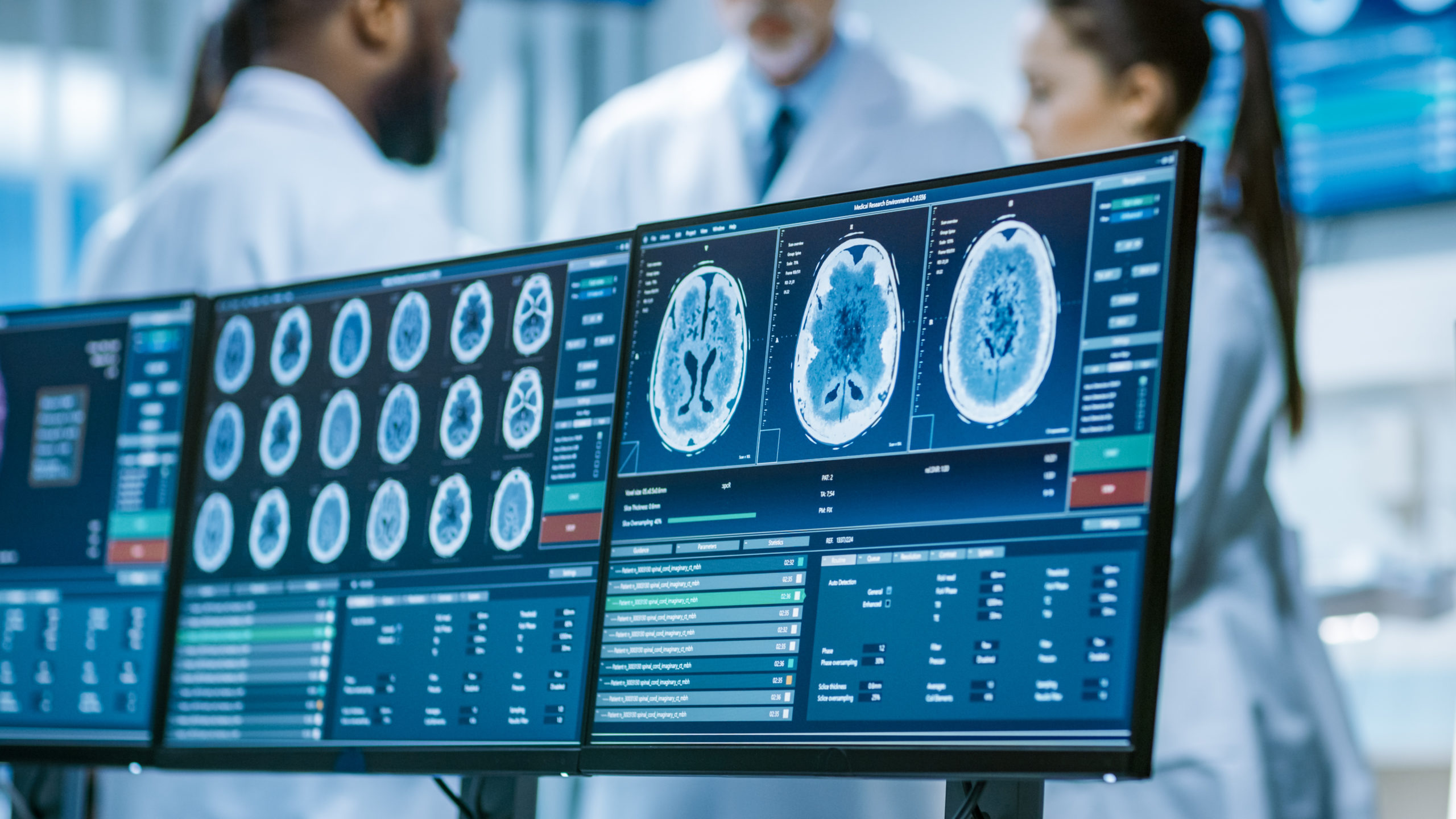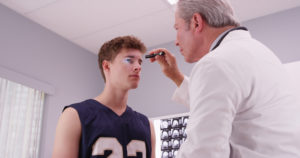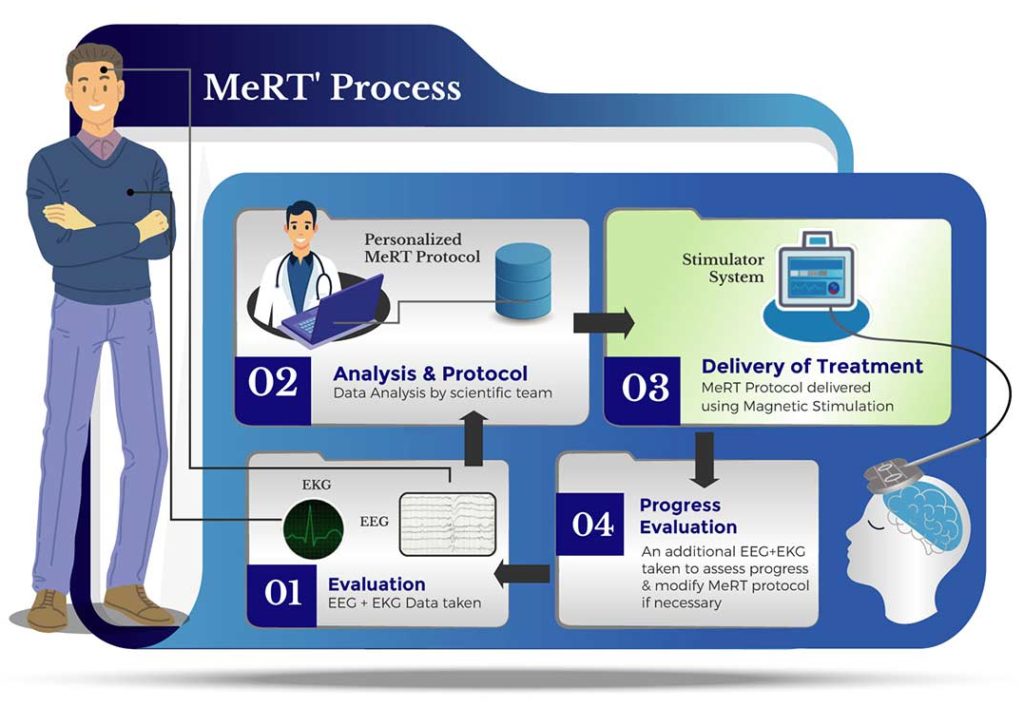Significant Improvements in Symptoms have been seen in a variety of Conditions Treated
Are You or Someone You Know Experiencing Any of The Following Conditions?
- Autism, Autism Spectrum Disorder, ASD
- Depression, Treatment-Resistant Depression, TRD, Major Depressive Disorder, MDD
- Traumatic Brain Injury, Concussions, Post Concussive Syndrome
- Post-traumatic Stress Disorder (PTSD)
- Anxiety and Panic Attacks
- Cognitive decline
- Learning disabilities
- Sleep Disorders
- Dementia
- Parkinson’s Disease
- After-effects of stroke
Renewed Hope for various Neurological Conditions Treated
MeRT Treatment Overview
Many people have tried therapies that did not work, or that caused side effects that were not tolerated. Some therapies did provide some help, but you still want to see more improvement. The BrainCare Performance Center of Orlando is excited to bring this cutting-edge technology, MeRT to Orlando and surrounding areas!
MeRT has shown success when medications haven’t worked. MeRT is also a treatment that can be used in conjunction with other therapies, and many of our patients have reported that MeRT can also improve the success of accompanying therapies. In this MeRT Treatment Overview, we will try to give you some idea of how this works.
In essence, we work to identify specific areas of the brain that are not communicating, using sophisticated diagnostics. Those targeted areas are addressed using gentle Magnetic Stimulation, resulting in improvement in various neurological conditions.
Treatment with MeRT begins with comprehensive diagnostics and evaluation to isolate very specific regions of the brain that are not functioning the way they should. These specific areas of the brain are then gently stimulated with magnetic waves to improve connectivity and communication.
What is MeRT?
MeRT, which stands for Magnetic Resonance Therapy, is a non-invasive, drug-free treatment used for a variety of neurological conditions.
MeRT, or Magnetic e-Resonance Therapy, is customized for each patient. Specifically, this cutting-edge treatment uses the combined technologies of:
- qEEG (quantitative electroencephalogram). Firstly, this non-invasive procedure involves placing electrodes along the scalp in order to map your brainwaves.
- ECG/EKG (electrocardiogram). At the same time, this procedure measures electrical signals coming from your heart. This helps us target the therapy to be as accurate as possible.
- rTMS (repetitive transcranial magnetic stimulation). Following the two procedures above, this third procedure uses magnetic coils placed along your scalp to stimulate specific areas of the brain.
The qEEG and EKG tell us how different areas of the brain are functioning. As a result of these tests, we can identify disruptions to your brain network. Then we create a treatment plan specifically tailored to you.
MeRT is non-surgical, non-invasive, painless, and completely drug-free. Specifically, we use gentle magnetic waves to reprogram electrical signals in the brain. As a result, we can modify behavior and restore function.
The equipment used in the MeRT treatment process is currently FDA-cleared for the treatment of Depression and Obsessive-Compulsive Disorder (OCD). For all other disorders, it is currently being used “off label,” however, the final studies are taking place through Texas A&M University to seek FDA clearance for Traumatic Brain Injury and Post-Traumatic Stress Disorder.
Do You Have Questions?
This page and website are designed to give you a MeRT Treatment Overview. However, our New Patient Coordinator is ready to answer any more specific questions you may have, explain our protocols and fees, and help you decide if MeRT is the right treatment for you.
She can also get your initial EEG and consultation scheduled, as a next step to see if you may benefit from MeRT, if this is something you would like to do.
Call Our New Patient Coordinator to Learn More
Call us: 407-730-4240
Or fill in the form below and she will contact you.
MeRT: Conditions Treated – Autism

Autism spectrum disorder (ASD) affects everyone differently. Each child is unique and experiences different levels of severity. Even if a child is on a similar “level” to another, they can still have individual symptoms, ways of dealing with the outside world, and communication methods.
The CDC estimates that autism affects one in 54 children. Additionally, ASD is four times more common in boys than girls. And ASD occurs across all racial, ethnic, and socioeconomic groups.
Although autism can be diagnosed at any age, symptoms generally appear in the first two years of life. Most children will show signs in the first year, yet some may develop normally and then regress between 18 and 24 months old. This regression can cause them to lose skills they’ve already learned and stop acquiring new skills.
For more information about how the providers at the BrainCare Performance Center Orlando can help patients with Autism, click here.
MeRT treatment for Autism was recently featured on the television show, “The Doctors.” You can watch the episode here.
MeRT: Conditions Treated – Depression
Patients who are clinically depressed have markers that we can see in their EEG studies. The EEG can show an imbalance in brainwave activity. Once we identify that imbalance, we can then strengthen the brainwave activity. As a result, this can reduce depression symptoms.
According to the Mayo Clinic, more than three million people are diagnosed with Major Depressive Disorder every year. They also report on new research that shows how the altered activity of certain neural circuits in the brain may contribute to depression.
So you can see why MeRT has been successfully used to treat depression, particularly when medications haven’t helped or have caused complex side effects. And MeRT is FDA-approved for Multiple Drug Resistant Depression.
The equipment used in the MeRT treatment protocols is FDA-cleared for the treatment of Depression. This non-pharmaceutical and non-invasive treatment has been used successfully to treat depression conditions that have not responded to medication or other therapies.
According to the Mayo Clinic, “more than three million people are diagnosed with Major Depression Disorder every year”. They also report that new research is confirming that factors that may contribute to Depression do cause changes in brain function to include altered activity of certain neural circuits in the brain.
MeRT: Conditions Treated – Traumatic Brain Injury/Concussion
There are three main types of TBI: Mild TBI or concussion, Moderate TBI, and Severe TBI. A traumatic brain injury can affect people of all ages. Some of the most common ways people get TBIs are from a fall, a firearm-related injury, a motor vehicle crash, or an assault.
When you receive a TBI, your brain can bounce around or twist in the skull. This can also cause chemical changes in your brain or brain cell damage. And depending on how severe the injury is, a TBI can cause health problems that last from a few days to the rest of your life.
A person with a mild TBI or concussion may feel better within a couple of weeks or months. And a person with a moderate or severe TBI may have long-term or life-long effects from the injury.
The EEG is key to the success of the MeRT treatment. Here’s why:
Patients with a traumatic brain injury have markers that are clearly visible in their EEG studies. The EEG can show us an imbalance in brainwave activity. Then, through a highly personalized treatment plan, we strengthen healthy brainwave activity. This can improve brain connectivity and communication. In many cases, this has greatly improved recovery results. *
MeRT: Conditions Treated – Post-Traumatic Stress Disorder
Post-traumatic stress disorder (PTSD) is a mental health disorder that occurs after a traumatic event. That event may involve a real or perceived threat of injury or death.
This can include a natural disaster like an earthquake or tornado, military combat, physical or sexual assault or abuse, an accident. PTSD can also arise after exposure to trauma over a long period of time. This can include childhood abuse or long-term abusive relationships.
While most people who experience trauma can recover over time, some can’t. If the symptoms get worse and interfere with your day-to-day functioning, you may have PTSD.
PTSD can happen to anyone at any age. And having PTSD doesn’t mean you’re flawed or weak.
And while PTSD may improve with medication and therapy, 20-50% of all patients don’t respond to conventional treatments. Yet, TMS—a key component of MeRT—has shown some remarkable results.*
Patients with PTSD have markers that are clearly visible in their EEG studies. The EEG can show us an imbalance in brainwave activity. Then, through a highly personalized treatment plan, we strengthen healthy brainwave activity. This treatment can result in a significant reduction of PTSD symptoms.
Plus, many people who experience post-traumatic stress also suffer from conditions such as depression and anxiety. MeRT treatment can address those conditions as well. *
*Most conditions treated with MeRT provide noticeable and long-lasting results after four to eight weeks of treatment; however, each patient is different, and results may vary.
MeRT Treatment Featured on “The Broken Brain” Podcast
If you suffer from Post-Traumatic Stress Disorder (PTSD), Depression, and/or a Traumatic Brain Injury (TBI), we recommend watching this highly informative podcast. Dr. Erik Won, from Wave Neuroscience (the parent company of MeRT technology), explains how this technology has evolved and how MeRT treatment was used successfully with members of the military who had been experiencing Depression, TBI, and PTSD as a result of their service to their country.
Depression, Anxiety, PTSD, and TBI don’t just affect veterans; if you are experiencing any symptoms as a result of any of these conditions, this podcast can be of help to you. Click here to watch this amazing podcast!
The MeRT Process
Studies have shown that brain wave oscillations are altered in patients suffering from conditions such as Depression and Major Depression Disorder (MDD) as well as other conditions such as PTSD, Traumatic Brain Injury, Autism, Dementia, and others. MeRT treatment protocols involve the use of a magnetic field to balance and stimulate brain function. The technology involves using brain imaging and sophisticated diagnostics to customize treatment for each individual with a personalized protocol, tailored based on the location, frequency, and amount of power used by the magnet, specific to each person’s unique condition. The objective with MeRT is to improve brain communication and synchronization, leading to significant and long-lasting improvements.
Initial MeRT research was done by the U.S. Department of Defense for veterans returning from combat. This article that was published in Defense One further explains this research and the benefits that MeRT had on those who, suffering from TBI, PTSD, and MDD, were treated with MeRT. Many more studies have been completed in the private sector on other conditions.
_____________________________________________________
Do You Have Questions?
Our New Patient Coordinator is standing by and ready to answer any questions you may have, explain our protocols and fees, and help you decide if MeRT is the right treatment for you. She can also get your initial EEG and consultation scheduled, as a next step to seeing if you may benefit from MeRT.
Call us: 407-730-4240
Or fill in the form below and she will contact you.
What to Expect When Starting as a New Patient
Once you decide to take the first step, we then set up two separate appointments. Each of these appointments will last 45 minutes to an hour. After this, we have an assessment period where the actual procedure and monitoring take place.
EEG Testing
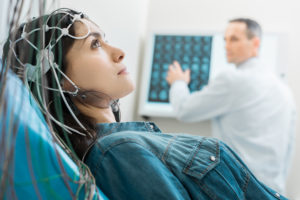
Once we perform the tests, our team will carefully analyze the results. Based on this analysis, we develop a treatment plan customized to your specific condition and schedule your assessment period of treatment.
Consultation
Your second appointment, after your qEEG/EKG, is a one-on-one consultation. You can do this either in person or virtually from the comfort of your home. We will discuss your test results and treatment protocols, answer any questions you may have, and let you know more about what to expect during your assessment period.
Assessment Period
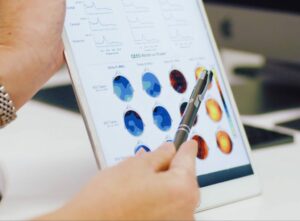
If there is a positive response to treatment during the assessment period, you will have likely noticed some improvements starting to take place. At that point, we will schedule additional MeRT treatment in two-week intervals.
At the end of every two weeks, we will perform a qEEG/EKG to monitor your progress; you will have a consultation to confirm that changes are still showing on the testing. With good response to the assessment period, the next treatment period can be scheduled.
Most conditions treated with MeRT provide noticeable and long-lasting results after four to eight weeks of treatment; however, each patient is different, and results may vary.
Contact Our New Patient Coordinator for More Information
Our New Patient Coordinator is available to answer any questions that you may have about how MeRT can help you. She’ll take the time to listen to your concerns, answer your questions, explain costs, and put your mind at ease. She can also assist you in getting scheduled should you decide to move forward with treatment.
We understand what you may be going through, and our goal is to help guide you through the process with quality care in a warm and compassionate environment.
Many MeRT clinicians and technicians have gone through treatment themselves. As a result, they know first-hand what this treatment can do. That’s why they’re passionate about helping you to heal.
Call Us Today. We are Here to Help.
Our New Patient Coordinator will take the time to answer your questions, listen to your concerns, and explain our procedures.
Call us: 407-730-4240
Or fill in the form below and she will contact you.
Contact Us
For more information or to speak with our New Patient Coordinator, please fill in the information below.
Contact Us
For more information or to speak with our New Patient Coordinator, please fill in the information below.
Life Can Be Better
You can be at peace and enjoy your life again! We encourage you to explore the possibilities of MeRT Treatment. If right for you, it can have a lasting impact with greatly improved quality of life.


